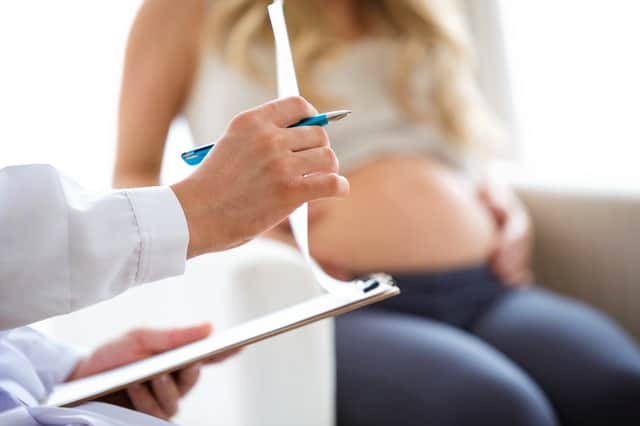NHS: Maternity deaths reach almost 20 year high as hospital wards deemed "inadequate" by CQC


The number of women dying in pregnancy or soon after childbirth is the highest it's been in almost 20 years, new figures show.
A national investigation into maternal deaths, stillbirths and infant deaths as part of the national Maternal, Newborn and Infant clinical Outcome Review Programme (MNI-CORP), said there were 13.41 deaths per 100,000 pregnancies reported from 2020 to 2022.
Advertisement
Hide AdAdvertisement
Hide AdExcluding deaths from Covid-19 – which was the second most common cause – the maternal death rate for the period was 11.54 per 100,000. This is up from 8.79 per 100,000 in 2017 to 2019.
The main cause of death in women who died during pregnancy or within six weeks of their pregnancy ending was thrombosis and thromboembolism, or blood clots in the veins. Heart disease and deaths related to poor mental health were also common.
The figures were released ahead of the publication of the 2024 Saving Lives, Improving Mothers’ Care report.
Clea Harmer, chief executive of bereavement charity Sands, said: “Today’s data showing a rise in maternal deaths is very worrying and adds to the overwhelming body of evidence that improving maternity safety for all needs to be at the top of the government’s agenda. We know that news like this can be distressing for anyone who has been affected by pregnancy or baby loss, particularly those who are pregnant again, and especially so if they are in a higher risk group.
Advertisement
Hide AdAdvertisement
Hide Ad“Sands is here to offer support to anyone affected by pregnancy or baby loss, however recently or longer ago they were bereaved.”
The news comes amid a flurry of maternity ward inspections by the Care Quality Commission (CQC). To date, half of the maternity wards inspected have required improvement, with roughly 15 per cent being graded as "inadequate" - up from four per cent in 2021.
An NHS England spokesman said: “While the NHS has made significant improvements to maternity services over the last decade, we know further action is needed to improve the experiences of women and their families across the country and so investment has increased to £186m annually to grow its maternity workforce, strengthen leadership and improve culture.
“The NHS has also introduced maternal medical networks and specialist centres, which are a vital step in improving the identification and management of potentially fatal medical conditions in pregnancy, wherever a woman receives care, and to ensure England continues to improve in its position as one of the safest countries in the world to give birth.
Advertisement
Hide AdAdvertisement
Hide Ad“Every local health system now also has a specialist community perinatal mental health team, and the NHS recently published guidance to ensure GPs carry out a comprehensive postnatal check-up six to eight weeks after women give birth covering a range of topics such as mental health and physical recovery.”
A Department of Health and Social Care spokesperson said: “Any death linked to childbirth is a tragedy, and we’re committed to ensuring all women receive safe and compassionate care from maternity services, regardless of their ethnicity, location or economic status. To improve maternity care, last year NHS England published a three-year plan to make maternity and neonatal care safer and more equitable.”
Comment Guidelines
National World encourages reader discussion on our stories. User feedback, insights and back-and-forth exchanges add a rich layer of context to reporting. Please review our Community Guidelines before commenting.
